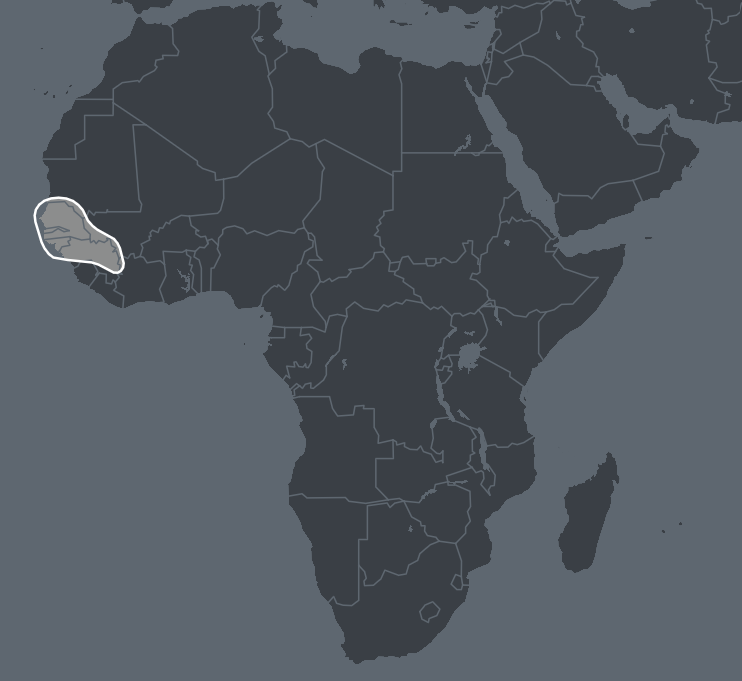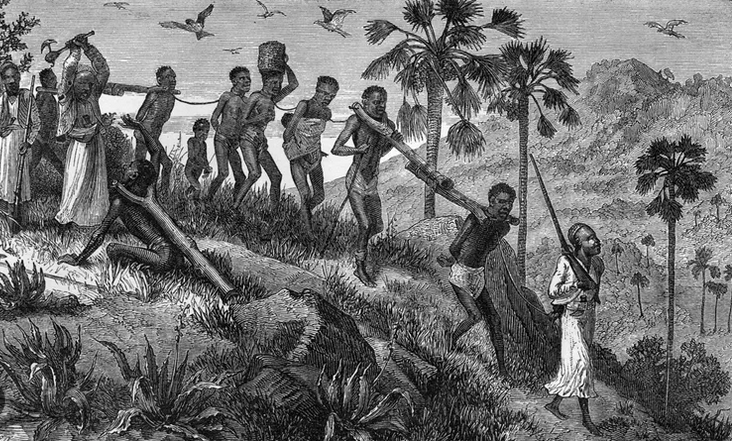What is Senegal DNA Ethnicity on Ancestry?
It is important to understand where our ancestry comes from and for some it may be more important than others. Those with African descent from the Senegal region may want to know where that came from and who their first Senegalese region ancestors were.
Senegal DNA Region
As the name suggests the country of Senegal is central to the Senegal DNA region on AncestryDNA. It is however not the only country that exhibits this DNA. As was as Senegal this DNA is found in:
- Southwest Mauritania
- Gambia
- Guinea Bissau
- Guinea
- Northern Sierra Leone
- Northern Ivory Coast

History of Africa
According to the paleontological record, it was the continent of Africa in which the first hominids developed. These early hominids were the first to walk in a bipedal motion and it is from them that eventually humans as we know them today evolved.
The fossil records suggest that homo sapiens were living in Africa between 260,000 to 350,000 years ago. Remains from South Africa, Morocco and Ethiopia seem to suggest that homo sapiens were already widespread throughout the continent during that time frame.
Senegal History
The West African coastal nation of Senegal has likely seen habitation since prehistoric times but its recorded history dates back to some early kingdoms of the 7th century. These kingdoms left little behind but by the 9th century the Takrur kingdom began its rise.

The Takrur kingdom was contemporary with the Ghana Empire but lasted in some form until the 18th century. Located in the Senegal river valley it was just one of many kingdoms in the region.
During the 13th and 14th centuries empires from the east arrived in the region. This would lead to between 1,300 – 1,900 people being enslaved. It would have been roughly a third of the population.
Colonialism
It was in the mid 15th century that the Portuguese arrived in Senegal followed soon after by other European traders. There was vast competition for trade in the region. This trade like other countries to the south did include the slave trade and the port of Goree near modern day Dakar was a minor slave trading port in the trans-Atlantic slave trade. In 1677 France seized control of Goree.
Entrenched on the island of Goree it would take until the 1850s before France began to expand to mainland Senegal and in doing so banned the slave trade. This would lead to resistance from the Senegalese.
Independence
After a period of European influence in the area Senegal became its own autonomous nation in 1959. They merged with French Sudan to form the Mali Federation but would split away in 1960 to become its own nation.
Where Did My Senegal Region DNA Come From?
Senegal, Guinea and many of the smaller West African nations all became at one time part of the Ghanaian Empire. This would bring Arabic influence to the region. These countries were all also part of what is known as the slave coast.
Conflicts in the region would see thousands of fighters being taken captive and pressed into slavery within the region. Some of these captured slaves would be traded to European ships involved in the trans-Atlantic slave trade.
The indigenous tribes of the area likely had their roots in the same region for thousands of years and their DNA extended through Senegal, Guinea and the other neighboring nations. Despite kingdoms arising among the native peoples they did not extend far and would ultimately be pushed back by large empires from the east.
Can You Trace Your African Ancestors From the Senegal Region?
As with all things genealogical, there is always a chance that you might be able to trace the origins of your African ancestors. This is of course dependent on a number of factors. Those in the U.S. who know their ancestors arrived as slaves centuries ago may find it difficult to find out exactly where they were taken from.

Due to historical instability in countries such as Senegal our understanding of the DNA population is limited. This means that unlike elsewhere in the world where we might be able to have a more pinpointed region of origin we are left with a broad area.
Depending on how recent our Senegal region ancestor is, we may be able to find records to support who they were and why they or their descendants left the country. The further back we go generationally speaking it becomes harder to pinpoint exactly where our ancestor comes from.
Final Thoughts
The Senegal DNA region is located in West Africa and the region it covers played a minor to moderate role in the trans-Atlantic slave trade. This means that many African Americans might discover Senegal region DNA in their ethnicity estimate due its proximity and a high likelihood that slaves were traded from this region to the new world.
It is a region that had its own small kingdoms but was mainly dominated by Eastern empires like the Ghanaian and also some European influence thanks to trade.
Link To or Reference This Page
We spent a lot of time downloading, cleaning, merging, and formatting the data that is shown on the site.
If you found the data or information on this page useful in your research, please use the tool below to properly cite or reference Name Census as the source. We appreciate your support!
-
<a href="https://namecensus.com/blog/what-is-senegal-dna-ethnicity-on-ancestry/">What is Senegal DNA Ethnicity on Ancestry?</a>
-
"What is Senegal DNA Ethnicity on Ancestry?". NameCensus.com. Accessed on May 10, 2024. https://namecensus.com/blog/what-is-senegal-dna-ethnicity-on-ancestry/.
-
"What is Senegal DNA Ethnicity on Ancestry?". NameCensus.com, https://namecensus.com/blog/what-is-senegal-dna-ethnicity-on-ancestry/. Accessed 10 May, 2024
-
What is Senegal DNA Ethnicity on Ancestry?. NameCensus.com. Retrieved from https://namecensus.com/blog/what-is-senegal-dna-ethnicity-on-ancestry/.
